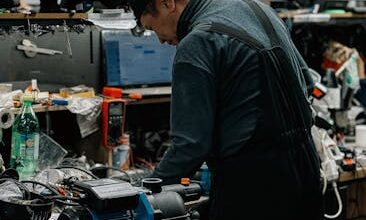The Athenian Rollercoaster: A Game of Swings and Roundabouts

There are some football matches that, even before the final whistle, embed themselves in the collective memory of a nation. Not always for triumph, sometimes for the sheer, nail-biting, heart-stopping drama. For Scotland fans, their recent World Cup qualifier against Greece in Athens was undoubtedly one of those. A five-goal thriller that saw Steve Clarke’s men battle valiantly, ultimately falling short with a 3-2 defeat, yet somehow managing to keep their 2026 World Cup dreams flickering. It was a night that encapsulated everything we love and dread about international football – raw emotion, tactical chess, and moments of both brilliance and despair.
Anyone who’s followed Scotland’s journey under Steve Clarke knows it’s rarely dull. This team, renowned for its grit and newfound resilience, arrived in Greece with a clear objective: to secure vital points in what promises to be a fiercely contested qualification group. The stakes were incredibly high, and the atmosphere in the Greek capital, even through a screen, felt charged with anticipation. What unfolded was a chaotic, captivating spectacle that kept supporters on the edge of their seats from the first whistle to the very last.
The Athenian Rollercoaster: A Game of Swings and Roundabouts
From the outset, this was not a match for the faint-hearted. The opening exchanges set a frantic tempo, with both sides clearly eager to assert dominance. Greece, playing on home soil with passionate support, started brightly, looking to exploit any early nerves in the Scottish ranks. Their attacking intent paid off surprisingly quickly, rattling the Scottish defence and taking an early lead that immediately shifted the dynamics of the contest.
Falling behind in a crucial qualifier is always a test of character, but this Scotland side has demonstrated time and again that they possess an abundance of it. Rather than buckling, the early setback seemed to galvanise them. They began to find their rhythm, pushing forward with more intent, and it wasn’t long before their efforts were rewarded. A well-worked move, culminating in a clinical finish, brought Scotland level, injecting a surge of confidence and silencing the home crowd, at least for a moment. This rapid equaliser showcased their ability to respond under pressure, a trait that has become synonymous with Clarke’s tenure.
However, the parity was short-lived. Just as Scotland seemed to be gaining a foothold, Greece struck again, regaining their lead with a goal that felt like a punch to the gut. The see-saw nature of the first half was utterly captivating, a testament to the competitive spirit of both teams. Going into the break 2-1 down, Scotland knew they had a mountain to climb, but the belief within the squad remained palpable. The second half promised more drama, and it certainly delivered.
Second-Half Surge and a Glimmer of Hope
The second half began with Scotland pressing harder, their urgency evident in every tackle and every run. Steve Clarke’s tactical adjustments at halftime appeared to inject fresh impetus, and for long spells, they looked the more threatening side. The pressure eventually told, and a moment of individual brilliance, or perhaps a perfectly executed set-piece, brought Scotland back into the game once more. The second equaliser was met with jubilant cheers from the travelling support and a collective sigh of relief from those watching back home. At 2-2, with time ticking away, the momentum seemed to be firmly with Scotland, and a famous comeback victory felt within reach.
But football, as we know, can be a cruel mistress. Just when Scotland appeared to have the upper hand, pushing for that elusive winning goal, Greece delivered a devastating blow. A swift counter-attack, or perhaps a lapse in concentration at the back, saw the home side score their third goal, shattering Scottish hopes and leaving them with precious little time to respond. The final minutes were a frantic scramble, a testament to Scotland’s never-say-die attitude, but ultimately, the clock ran out. The 3-2 scoreline painted a picture of a team that fought to the bitter end but just couldn’t quite get over the line.
Scotland’s Resilience: Losing the Battle, Not the War
A defeat, particularly in a match of such importance, always stings. Yet, the narrative surrounding this 3-2 loss to Greece is more nuanced than a simple tally of goals. For Scotland, the biggest takeaway isn’t just the result, but the fighting spirit that was on full display. To come from behind twice in a hostile environment speaks volumes about the character ingrained in this squad. They might have lost the three points, but they certainly didn’t lose their reputation for resilience.
The crucial silver lining, and indeed the reason why the tagline “stay alive” rings true, lies in the broader context of the World Cup qualifying group. While the defeat was a setback, other results in the group meant that Scotland’s qualification hopes remain very much alive. This isn’t a campaign-ending loss; it’s a temporary stumble. The road to 2026 is a marathon, not a sprint, and there are still plenty of points to play for. The focus will quickly shift to correcting the defensive frailties exposed in Athens, while simultaneously building on the attacking prowess and mental fortitude that saw them score twice against a determined Greek side.
For Steve Clarke, the post-match analysis will be critical. There will be questions about defensive organisation and how to prevent conceding crucial goals at pivotal moments. However, he will also be acutely aware of the positives: the team’s ability to create chances, their determination to fight back, and the sheer effort put in by every player. These are the foundations upon which Scotland’s recent successes have been built, and they remain firmly in place.
Looking Ahead: The Road to 2026 Continues
The journey to the 2026 World Cup is a long and arduous one, filled with highs, lows, and unexpected twists. Greece 3-2 Scotland was a clear example of the latter. While the immediate disappointment of the loss will linger, the pragmatic truth is that Scotland’s destiny remains in their own hands. This qualifying campaign is far from over, and the lessons learned in Athens will undoubtedly be invaluable moving forward.
The challenge for Scotland now is to dust themselves off, regroup, and channel the frustrations of this defeat into renewed determination for their upcoming fixtures. The ability to bounce back from adversity is often what defines successful teams, and this Scottish squad has proven its capacity for doing just that. Their fans will demand nothing less, and with the talent and spirit evident within the team, there’s every reason to believe that the dream of 2026 is still very much alive.
This match served as a stark reminder of the fine margins in international football and the unpredictable nature of qualification campaigns. It was a thrilling encounter, filled with drama and goals, leaving an indelible mark on both players and supporters. As the dust settles, the focus shifts to the future. The road ahead may be challenging, but for Scotland, the journey continues, and their resolve to reach the grand stage remains unshaken.





